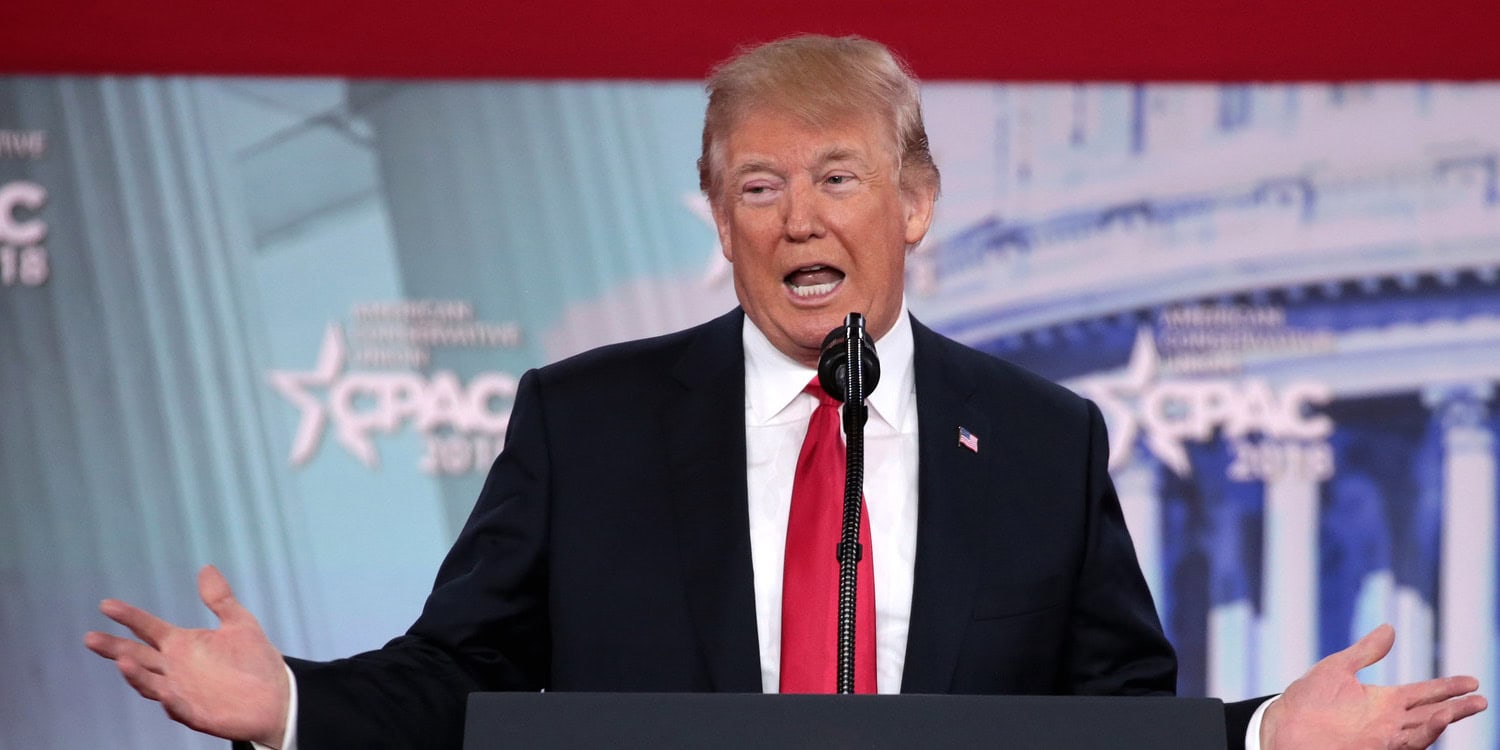In a recent study published in Political Research Quarterly, researchers explored the growing trend of Republican elites using the term “Democrat Party” instead of the correct “Democratic Party.” This slight mislabeling, often overlooked by casual observers, is no accident; it’s a deliberate slur meant to demean the opposing party. The study showed that while the usage is not entirely new, it has increased significantly in recent years, particularly following the 2016 election.
Political polarization has been a growing concern for decades, with scholars noting a sharp increase in negative partisanship—where individuals not only support their party but also deeply dislike the opposing one. The researchers behind the new study were interested in understanding how political elites, especially Republicans, contribute to this trend through language. The use of “Democrat Party” as a slur, they argue, reflects deeper intra-party dynamics and the influence of partisan media in shaping the political discourse.
The study aimed to answer two key questions: Why has the use of the term “Democrat Party” surged recently? And what role do elite Republicans and conservative media play in popularizing this mislabeling? The researchers hoped that by documenting and explaining these trends, they could shed light on how political elites influence public opinion and contribute to an increasingly polarized political environment.
For their study, the researchers collected and analyzed various data sets of political communication, focusing on Republican politicians and conservative media. They gathered information from sources such as Donald Trump’s Twitter feed, Republican members of Congress’ communications, and transcripts from prominent conservative media outlets like Rush Limbaugh’s radio show and Fox News.
The study covered a time frame from 2010 to 2020, a period marked by significant political upheaval in the United States. This decade included the rise of the Tea Party, the election of Donald Trump, and growing influence from conservative media outlets. The researchers looked at how often Republican politicians used the term “Democrat Party” in their speeches, tweets, and public statements. They also analyzed the content of right-wing media broadcasts to see how often these outlets used the term and whether there was a correlation between media usage and political adoption of the slur.
A key part of the analysis involved identifying whether there was a causal relationship between conservative media’s use of “Democrat Party” and its increasing adoption by Republican politicians. The researchers used a statistical method called Granger causality tests to determine whether changes in media usage of the term influenced political elites.
The results showed a marked increase in the use of “Democrat Party” as a slur in recent years, particularly around 2018 and 2019. While the term has been used sporadically for decades, its prevalence exploded during and after the 2016 election.
The study identified Donald Trump as one of the key figures responsible for mainstreaming the term. Trump, in his speeches and tweets, often referred to the “Democrat Party,” explaining that he did so because “it sounds worse.” This intentional mislabeling was echoed by other prominent Republicans, including Ted Cruz and Kevin McCarthy.
However, Trump wasn’t the originator of this trend. The study found that conservative media outlets, particularly Fox News and personalities like Rush Limbaugh and Mark Levin, were instrumental in pushing the use of “Democrat Party.” These media figures regularly used the term, and their large audiences helped spread it further. Republican politicians, particularly those aligned with more performative and partisan factions of the party, adopted the term, likely as a result of the media’s influence.
“Trump has captured the attention of analysts, yet our findings suggest that while he engages in incivility and uses polarizing language, the former President is responding to trends within the Republican Party as much as he is driving them,” the researchers wrote.
One of the most interesting findings was that the use of “Democrat Party” was not necessarily tied to specific criticisms of the Democratic Party’s policies or actions. Instead, it was often used as a performative insult—simply a way to demean the opposing party without engaging in substantive critique. This shift reflects a broader trend in American politics toward more performative partisanship, where political actors focus more on signaling their loyalty to their party and less on engaging in meaningful policy debates.
While the study provides insights into the role of language in political polarization, it does have some limitations. One of the main limitations is its focus on Republican elites and conservative media. The researchers did not examine whether similar patterns exist among Democrats or in left-leaning media. This leaves open the question of whether Democrats are also engaging in performative partisanship through language.
The researchers noted that “we do not claim that what we have referred to as a ‘slur’ and an ‘epithet’ is necessarily cause for alarm. It is uncivil, to be sure, yet politics and campaigns have frequently veered into the crass and demeaning… We choose those words because they most accurately represent what is intended by the mislabeling of the Democratic Party. By all accounts, it is a memetic device meant to convey a curse.”
“Yet it may be that the routinization of disrespect inherent in widespread adoption of the slur by Republican elites is one more indication of ongoing challenges to democratic pluralism in the U.S., in the current climate, even if it is more symptom than cause and its direct effects on individuals are not great,” they added.
The study also raises questions about the broader impact of partisan media on political discourse. While it’s clear that media figures play a significant role in shaping how politicians talk about their opponents, more research is needed to understand how this dynamic affects voters. Does the use of terms like “Democrat Party” actually change how ordinary citizens view the opposing party, or is it merely a tool for rallying the base?
The study, “The Rise of the “Democrat Party”: Republican Elites, Partisan Slurs, and Linguistic Polarization,” was authored by David Karol and Zachary Scott.




